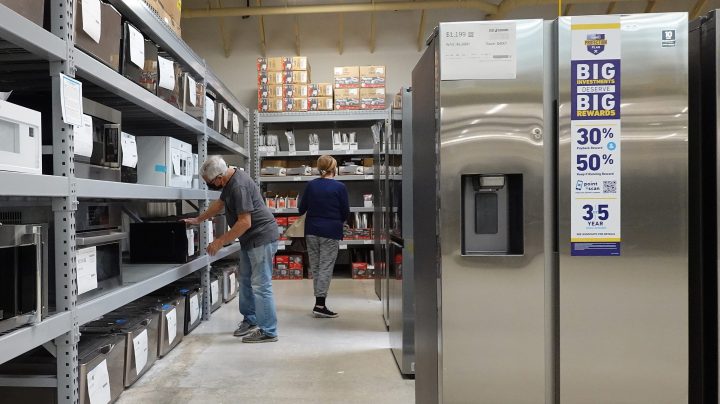
April retail sales data add confusion to an already confusing economy
April retail sales data add confusion to an already confusing economy

On Tuesday, the Commerce Department released April retail sales numbers, which showed a 0.4% uptick. That’s the first boost after two months of declines, but less than analysts were expecting.
The data suggests that people are dining out more but cutting back on buying big-ticket items like appliances. Add that to day-to-day headlines like rising credit card debt and delinquencies while airlines have record-breaking bookings, and the economy feels all over the place.
If you find the moody ups and downs of all these incremental data points confusing, you’re not alone. “I think everyone finds it confusing,” said Joanne Hsu, who directs the Surveys of Consumers at the University of Michigan.
See, we’re all in this together! But that can be both comforting and scary, and those sentiments somewhat describe people’s sense of the economy at the moment.
Some are worried about the job market, but not necessarily their own job. Plenty are concerned about inflation, so they might put off buying a new stove yet are willing to treat themselves to a sushi lunch.
“People’s attitudes have not always completely squared with what their spending patterns look like,” Hsu said. “All of these data points are different slices of the consumer experience.”
Between the pandemic and its economic ripple effects, the consumer experience has been a wild ride. And people are reacting to that, observed Jessica Ramirez, a retail analyst at Jane Hali & Associates.
“You know, if you can enjoy a night with a friend or if you can enjoy a moment out, it seems to be the priority,” she said.
Many people are still making up for lost time. There’s pent-up demand for services, dinners out, baseball games and vacations. Meanwhile, demand for goods is lower because people overbought while they were stuck at home.
“You can only buy so many electronics and one of each for your kitchen,” Ramirez said.
Sales of big-ticket items are what economists usually watch as a barometer of what consumers feel they can afford. But economist Mark Zandi at Moody’s Analytics argues that maybe we need to — at least temporarily — reconsider our “normal” indicators.
“You know, it’s never gotten quite back to normal, ’cause maybe normal’s different, right?” Zandi said.
In that way, the mixed messages coming in maybe make sense. “You add it all up, and it’s a consumer that’s, you know, hanging in there, doing their part,” Zandi added.
Doing their part — one spicy tuna roll at a time.
There’s a lot happening in the world. Through it all, Marketplace is here for you.
You rely on Marketplace to break down the world’s events and tell you how it affects you in a fact-based, approachable way. We rely on your financial support to keep making that possible.
Your donation today powers the independent journalism that you rely on. For just $5/month, you can help sustain Marketplace so we can keep reporting on the things that matter to you.

















